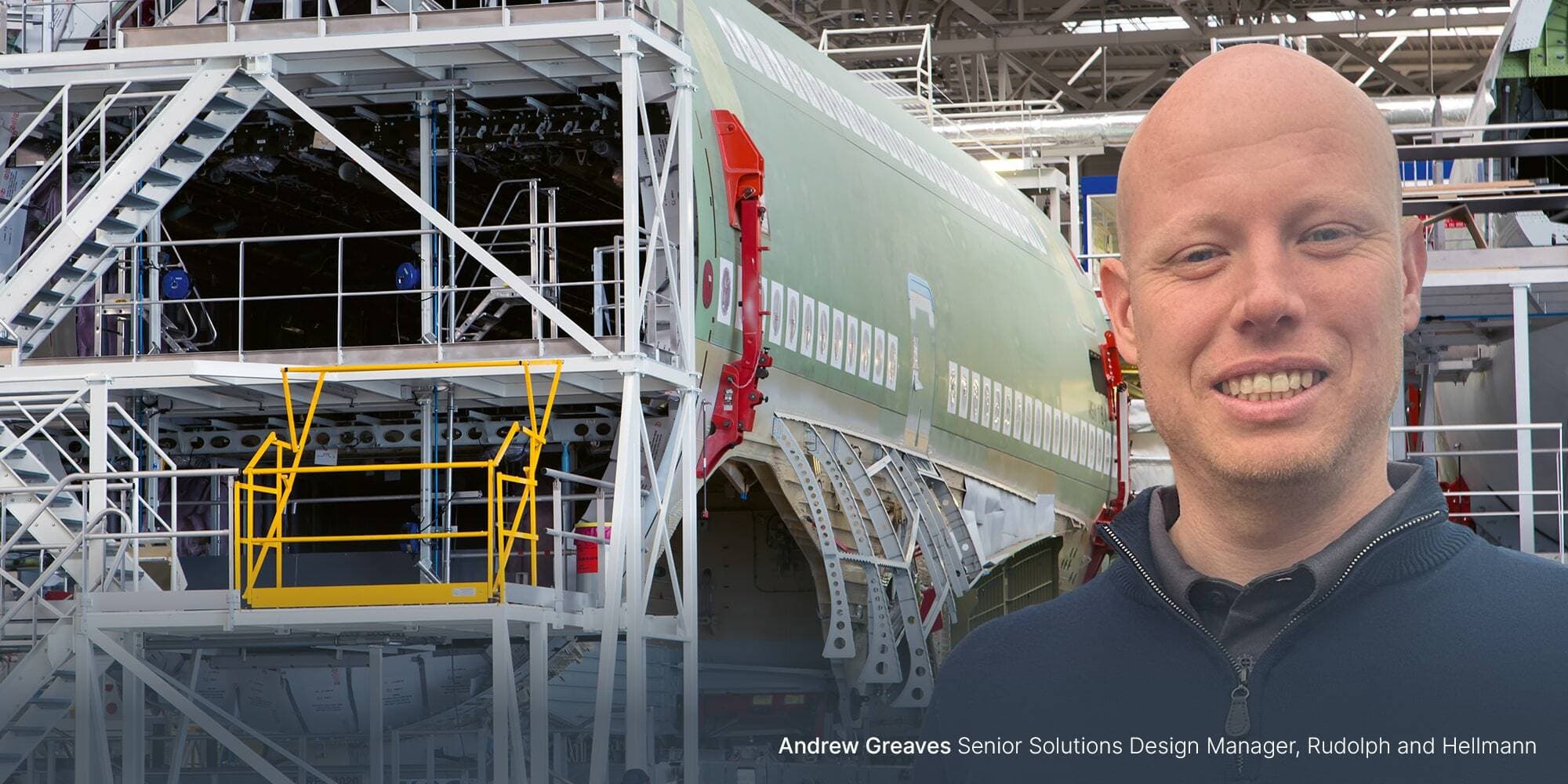The UK aerospace manufacturing sector is facing operational challenges that are impacting production capacity, profitability, and the ability to meet global demand. With recent reports highlighting significant issues within major players like Airbus and Boeing, it is crucial to explore how more efficient, flexible operational logistics can help solve these issues.
The Challenges at Hand
Several factors contribute to the strain in the aerospace manufacturing sector. According to a recent article in The Times, Boeing and Airbus are experiencing significant production disruptions, which in turn are affecting their UK suppliers like Senior. Senior, a key aerospace supplier, is suffering from decreased orders due to these disruptions, further stressing their capacity to operate efficiently. At the same time, as outlined in the Financial Times, a lack of skilled workers and ongoing production issues, particularly in relation to the Typhoon fighter jet, have left many aerospace manufacturers struggling to stay afloat.
These challenges point to a larger, systemic issue in the UK’s aerospace manufacturing sector. Supply chain disruptions, workforce shortages, and the inability to manage production capacity have created a difficult environment for many companies. While these issues are multi-faceted, a common thread running through all of them is the lack of an efficient, flexible logistics solution capable of adapting to the fluctuating demands of the sector.
The Pain of Operational Inefficiencies
When logistics systems in aerospace are rigid and incapable of quickly responding to shifts in production, the results are far-reaching. These inefficiencies manifest in a multitude of ways: delayed deliveries, backlogs in production, and increased costs due to disruptions or the need to expedite materials. The inability to flexibly manage logistics can also result in an underutilised workforce, where staff are either overworked during peak periods or idle during times of slow demand. All of this leads to lost profits and restricted production capacity, both of which can undermine a company’s competitive edge.
In the absence of flexible logistics, companies must navigate around bottlenecks or adjust production schedules, all of which increase operational costs. The loss of revenue, paired with increased expenditures on materials and human resources, can have a devastating impact on profitability, particularly when combined with rising production costs from suppliers.
Resistance to Viewing Logistics as a Specialised Resource
A key issue in addressing these inefficiencies is the resistance to viewing logistics as a highly specialised resource, rather than a commodity that can simply be brought in when necessary. Many aerospace manufacturers regard logistics as secondary to the core manufacturing process, often treating it with less strategic importance than they should. The prevailing mindset is that logistics, in aerospace at least, should be a reactive component rather than a proactive one. The comparison to automotive logistics is often made, with the general view being that logistics for aerospace, due to its perceived complexity, cannot be effectively managed with the same methods used in the automotive industry.
However, this perspective fails to appreciate the specific demands of aerospace logistics. Unlike automotive logistics, where the emphasis is on mass production and quick turnover, aerospace logistics is far more intricate and exacting. The level of compliance required in aerospace—due to regulatory and safety standards—makes the logistics process much more complex. Every shipment must meet strict guidelines, and even a small error can lead to significant consequences, such as production delays, financial losses, or safety hazards.
For instance, aerospace logistics requires meticulous attention to detail, as every component, from fasteners to engines, must adhere to specific quality and regulatory standards. The consequences of mistakes—whether in shipping, handling, or inventory management—are not merely operational inconveniences but can result in costly fines, damaged reputations, and legal ramifications. Thus, the logistics process in aerospace must be treated as a specialised function, with a focus on compliance, precision, and agility, rather than as a simple commodity.
A Shift in Perspective: Quality Controls and Flexing Operational Logistics
In order to address these operational inefficiencies, the aerospace manufacturing sector needs to rethink its approach to logistics. Instead of continuing to view logistics as a cost centre or an afterthought, manufacturers should see it as a critical component of their overall strategy. Flexing operational logistics—designing a system capable of adapting to changing needs and fluctuating demand—could provide the solution that the UK aerospace industry needs.
By embedding flexibility into logistics solutions, aerospace manufacturers can more easily adjust to production variations, reducing downtime and improving responsiveness to shifts in demand. Additionally, designing these solutions with a focus on compliance and quality control will ensure that the stringent regulatory requirements of aerospace logistics are met without sacrificing efficiency.
A flexible logistics approach would allow manufacturers to better manage inventory, reduce lead times, and streamline supply chains, ultimately leading to increased productivity and reduced costs. Logistics could no longer be seen as a simple support function, but as a key enabler of operational excellence.
The Future: Designing Logistics for Efficiency and Quality
The challenge for UK aerospace manufacturers is not simply to solve the issue of logistics inefficiency but to create a culture of efficiency within their operations. The level of compliance and complexity required in aerospace logistics should not be viewed as an obstacle, but as an opportunity to design logistics solutions that are both agile and robust. When done correctly, these solutions can be a game changer, enabling manufacturers to operate more efficiently, reduce costs, and boost production capacity.
In conclusion, by viewing logistics as a specialised resource that can be strategically designed into any operation, UK aerospace manufacturers can unlock significant efficiencies. The key to success lies in thinking differently—recognising the inherent complexity of aerospace logistics and creating a culture that prioritises efficiency without compromising on quality or compliance. As the aerospace sector continues to evolve, flexibility in logistics will be the foundation for staying competitive and resilient in a rapidly changing market.




